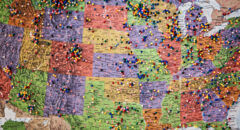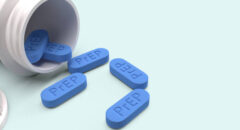400 years of racism that have lead to countless disadvantages that black people battle to overcome on a daily basis. HIV impacts black populations disproportionately because the majority don’t have adequate access to the resources needed to learn about, prevent and treat the disease.
Through policies and procedures, institutionalized racism creates a system that implicitly and sometimes explicitly targets black people, leaving them severely disadvantaged.
Socioeconomic status
28.1% of black people are living in poverty compared to the national average of 15.9 % according to the 2012 Census findings. These numbers reflect the fact that these black people that are living in poverty are, in part, a result of the limited opportunities for upward mobility afforded to them.
Often living in poverty means lack of education, lack of access to proper healthcare, increased risk of substance use, homelessness, mental health issues and heightened likelihood of participating in sex work for their main source of income. Obviously, all of these are factors that can dramatically increase the risk of contracting HIV. For those living in poverty who become HIV-positive, priorities are skewed.
Their survivalist mentality only lends itself to concerns on a day-to-day basis are finding and







